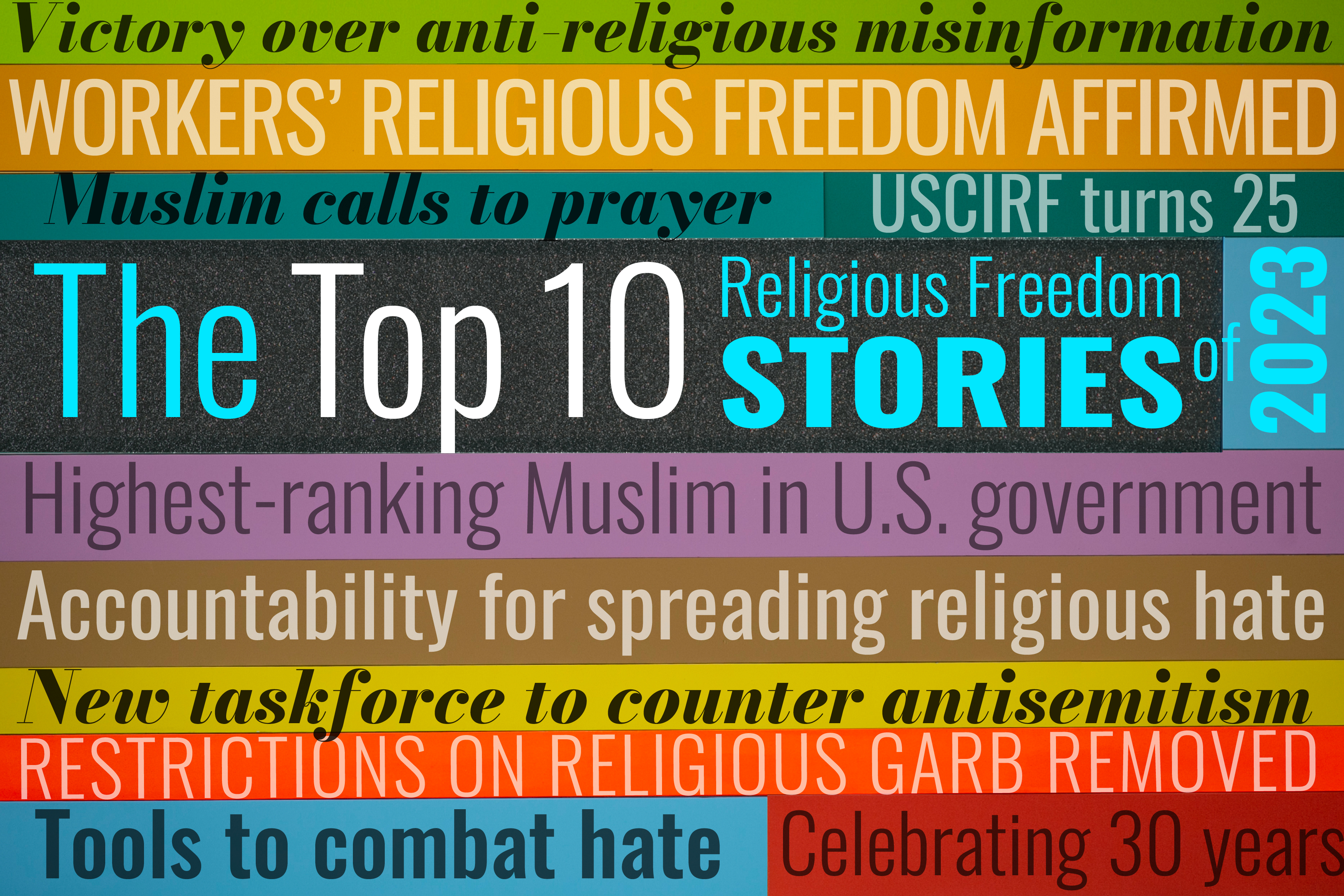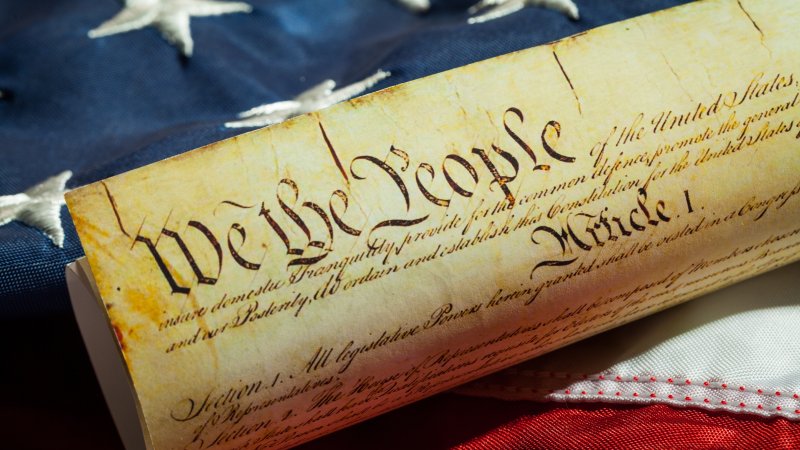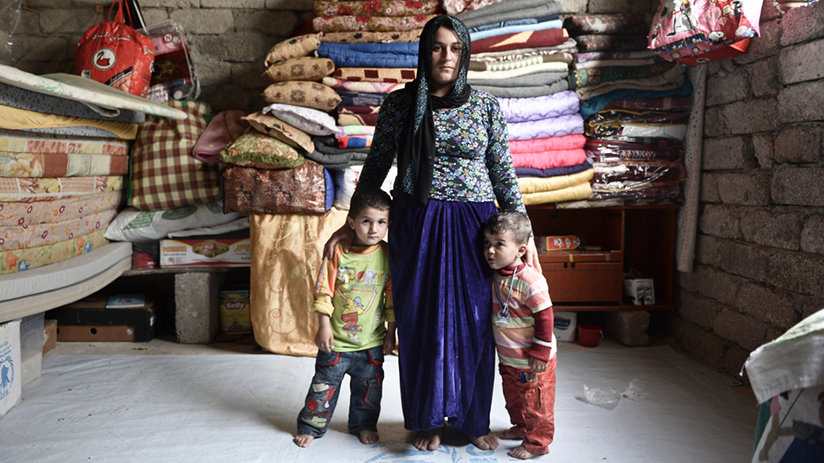The Top 10 Religious Freedom Stories of 2023
2023 was a year saturated with disturbing headlines and soaring hate crime statistics. With organizations like the U.S. Commission on International Religious Freedom, the Anti-Defamation League (ADL), the Muslim Public Affairs Council and others working overtime tabulating this pocket of religious freedom abuse and that community experiencing it, it can appear that the lamps of liberty in faith are being snuffed out around the globe.

Often not making it to the front page, however, are the hints of light in the gloom—solitary flashes of good news that pry open the door to a more hopeful future, enabling us a glimpse if we would just look.
Here then are the top 10 religious freedom stories of the year, presented in no particular order, but all at once—for a heaping helping of hope at the dawn of 2024.
Minneapolis becomes first major U.S. city to OK dawn-to-nightfall Muslim calls to prayer.
The Minneapolis City Council, in a unanimous vote, changed a city noise ordinance to allow the Islamic call to prayer—mandated by religious doctrine—at all times of day. A multi-faith coalition of Christian and Jewish leaders supported the amended ordinance, a nod to Minnesota’s growing Muslim population. “Minneapolis has become a city for all religions,” said Imam Mohammed Dukuly of Masjid An-Nur mosque in Minneapolis.
Supreme Court unanimously affirms postal worker’s religious freedom not to work on Sunday.
Gerald Groff, an Evangelical Christian who believes that Sunday is a day of worship and rest, took a job with the U.S. Post Office in 2012. With no mail delivery on Sundays, it went well until an agreement the Post Office struck with Amazon compelled his office to make deliveries on Sundays. Groff refused, lost his job, sued, lost and appealed his case all the way to the Supreme Court, which—in a rare display of unity—unanimously found in his favor. Groff said the High Court’s decision “allows others to be able to maintain their convictions without living in fear of losing their jobs because of what they believe.”
Pennsylvania becomes final state to remove restrictions on religious garb.
The Pennsylvania state legislature repealed a 1949 provision from the State Public School Code, paving the way for teachers to wear garb that reflects their faith. It was the final state in the nation to remove such restrictions. With the repeal of the ban—which levied draconian penalties on teachers who wore any distinguishing symbol, sign or apparel of their religion—teachers may now freely wear yarmulkes if Jewish, hijabs if Muslim, turbans if Sikh, crosses if Christian, and so on, without fear everywhere in the U.S.
White House creates toolkit for faith communities to counter hatred.
Addressing the rising tide of antisemitism, the White House issued what it described as “the most comprehensive and ambitious U.S. government effort to counter antisemitism in American history.” The 60-page “toolkit” is a sweeping all-encompassing frontal attack on “the oldest hatred,” with strategies for all sectors of society—state and local authorities, individuals, community and faith leaders, and the private sector. The toolkit’s four-fold aim is to (1) Increase awareness and understanding of antisemitism, including its threat to America, and broaden appreciation of Jewish-American heritage (2) Improve safety and security for Jewish communities (3) Reverse the normalization of antisemitism and counter antisemitic discrimination and (4) Build cross-community solidarity and collective action to counter hate.
In victory over misinformation and bigotry, major Muslim charity wins defamation settlement.
In what was described as a “milestone,” Islamic Relief Canada won an out-of-court settlement over a set of publications that made “false, malicious and defamatory” statements about the charity—including that it was a “front” for terror groups abroad. Islamic Relief Canada’s CEO said, “This case illustrates the kind of misinformation that legitimate aid organizations too often face in carrying out their vital humanitarian missions. By holding those who spread misinformation accountable for their actions, we can send a clear message that this type of behavior will not be tolerated.”
The U.S. Commission on International Religious Freedom turns 25.
On October 23, the U.S. Commission on International Religious Freedom (USCIRF) celebrated the 25th anniversary of the passing of the International Religious Freedom Act (IRFA), enacted to elevate religious freedom to a key priority of American foreign policy. Included in the bill was the establishment of a non-partisan entity of nine commissioners—USCIRF—who report abuses of religious freedom globally, spotlight nations that violate religious freedom, and advise Congress, the secretary of state and the president on what courses of action to take. USCIRF has, in that quarter century, done much to advance the cause of religious freedom on the international stage. As one of the original sponsors of IRFA, former Senator Joe Lieberman said, religious freedom is “what America is all about.”
New international task force of global Jewish organizations formed to counter antisemitism.
The ADL, together with major Jewish organizations from seven countries, teamed up to fight antisemitism. Known as the J7, the new organization represents nations with the largest Jewish populations outside of Israel—nations which will collaborate to address issues like the dissemination of hate through social media, the role of education in attacking bigotry and methods of increasing security. “Antisemitism is rising around the world, especially in countries where there are large Jewish populations,” ADL CEO Jonathan Greenblatt said, “and threats to our communities are not contained by continents and borders.”
Spanish court finds in favor of Jehovah’s Witnesses in defamation case—affirms media’s accountability for spreading religious hate.
In a landmark decision, a Spanish court ordered El Mundo, a major Spanish news outlet, to publish a rebuttal to a defamatory article the platform ran which called the faith community—a government-recognized religious group—a “cult.” El Mundo had previously refused to publish the group’s response to the article, which the court found contained inaccuracies and rumors aimed at damaging the Jehovah’s Witnesses. But the court went one step further, ruling that El Mundo was responsible for fact-checking the claims of its sources—in this case, an apostate group with an ax to grind. The ruling served as a warning for any other media considering becoming a platform for hate.
Church of Scientology marks 30 years of religious recognition by the U.S.
On October 1, 1993, the IRS formally recognized the Church of Scientology International and all its related churches and organizations as tax-exempt religious and charitable institutions in a victory for religious freedom. The ensuing 30 years have seen a parade of further religious recognitions across the globe, and have marked a period of unprecedented expansion of the Scientology religion, its churches, missions and its associated social betterment groups.
Senate confirms highest-ranking Muslim in U.S. government.
Dilawar Syed, a Pakistani-born Muslim, was confirmed as the Small Business Administration’s new Deputy Administrator, making him the highest-ranking Muslim in the U.S. government. Despite support from more than 150 ethnically diverse civic, state, higher education and religious organizations and leaders, the confirmation of Mr. Sayed, an individual with impeccable credentials for the position, took some two years to complete. Small Business and Entrepreneurship Chair, Senator Ben Cardin, summed up the process in a statement: “While his confirmation has been a process fraught with unacceptable delaying tactics, unfounded accusations, and unrelated controversies, Mr. Syed has shown only patience and perseverance.”
And there you have it. The Top 10. Possibly we left out one or two or several dozen. If so, please add them to your own list. And this year of 2024, may there be so much good news that we need to expand our list to a Top 20, Top 100—or even more.
(This kind of news story—unlike our usual diet of bile—is something we can never have too much of.)










